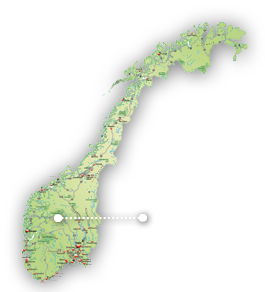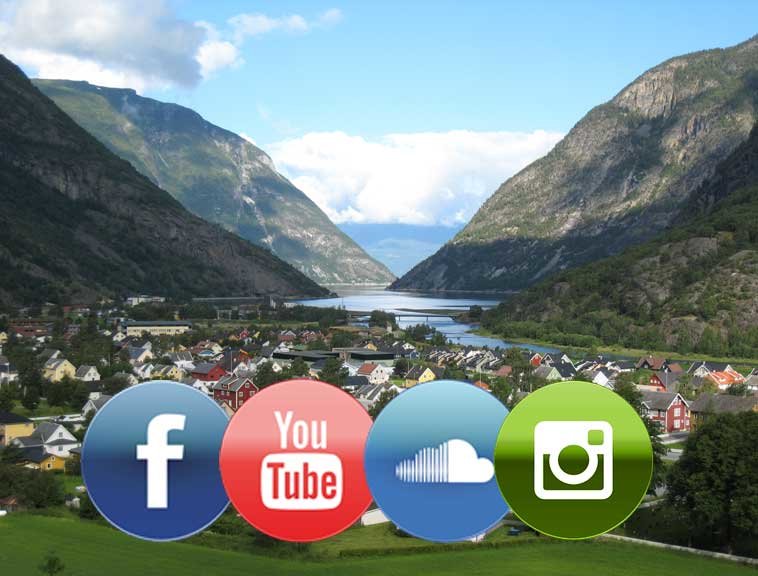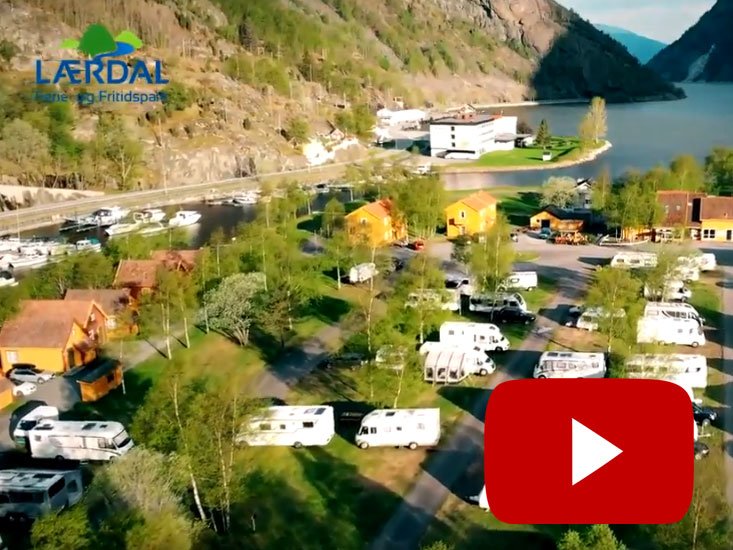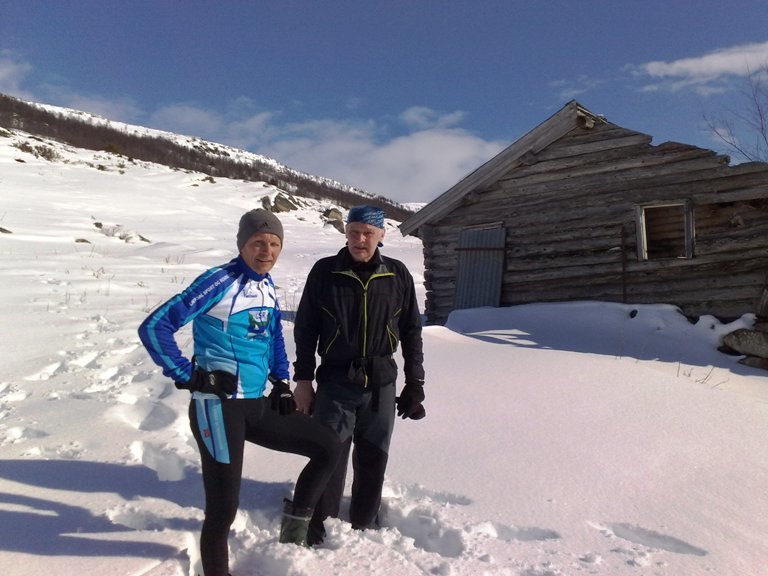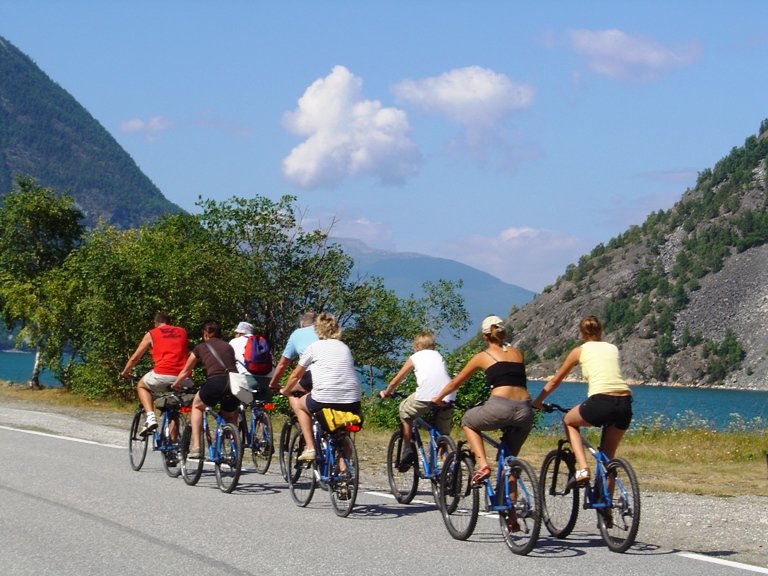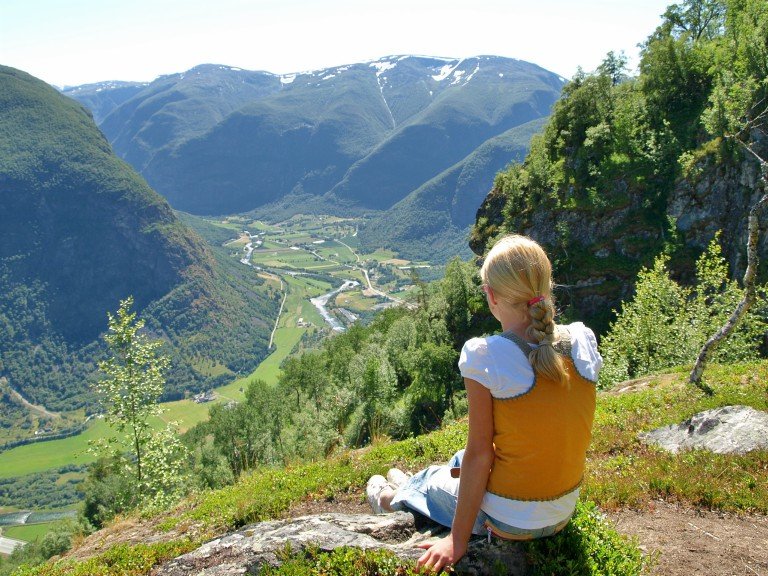Historical attractions
Lærdal is rich in culture & historical attractions! Here you will find historic roads, Borgund Stave Church, Norwegian Wild Salmon Center, Sogn Art Museum, Old town of "Lærdalsøyri", Lærdals river "Lærdalselva" and much more!
Historic roads, "The King Road" and trading town:
(Text from Lærdal municipality's website). The most important and most useful road between Bergen and Oslo has always passed through Lærdal. Today, four parallel roads from different eras bear witness to this. The road that Harald Hårfagre used when he went from Valdres to Voss, that Olav den Heilage took thorugh the valley on his Christian journey in 1023 and that King Sverre took his birch bones on in 1177. With the Lærdalstunnel, the world's longest road tunnel (24,5 km) which opened in 2000, the municipality became a new junction in transport law. The many historical roads are today good hiking trails in an exciting cultural landscape.
About half of our approximately 2,200 inhabitants live in the municipal center Lærdalsøyri. Here, from ancient times, it was a beach town, and right from the Viking Age, and until today, an important hub. Today, most of the cultivated land lies on the flats along the river up the valley. Most of the settlement is concentrated here. In the Middle Ages, Lærdal naturally developed as a market place.
In the old market square at Lærdalsøyri, east and west met. People came from Valdres and Hallingdal and from the outermost fjords to trade and buy goods. The old "Lærdalsmarknaden" was closed down in the 1870s, but reopened in 1982 and is now held every year, in June. In addition, an autumn market is organized in September/ October, with an emphasis on selling local produce, fruit and vegetables. From 2014, the Christmas market became a reality, and is held every year in November. All the markets take place on old Lærdalsøyri with the protected buildings as a backdrop.
Gamle Lærdalsøyri
".....161 small houses close together" ...this is how Bishop Pontoppidan saw Lærdalsøyri on a journey through Lærdal in 1749. Up until 1860 there was an upswing in trade and traffic, and the town became a hub between the east and the west. In 1860, the settlement had reached the extent that today, largely, constitutes the protected area on Lærdalsøyri.
Borgund Stave Church
Borgund Stavechurch stands in Borgund, part of Lærdal municipality, only 28 km from the holiday park. The church was built around the year 1180 and is exceptionally well maintained and is the most visited stave church in Norway. Remember that a visit to the stave church can easily be combined with a cycling or walking tour on the historic roads!
Norwegian Wildsalmon Center
The exhibitions tell about the Atlantic salmon's life course and migrations in the sea, the threats against the wild salmon tribe, and give an insight into how humans have hunted the salmon throughout the ages.
See wild salmon and sea otters in the river stream - in the 20 metre long salmon hole. So close that you can almost touch the salmon. The fish you see in the cave have either entered freely from the river up through the salmon ladder, or they have been caught and released into the cave.
Sogn Art Centre
Hans Gjesme donated his art to Lærdal municipality just before he died. Based on this Gjesmegalleriet was established in 1998. The collection especially includes many landscapes and portraits, sketches and finished works, in various techniques such as drawing, painting, watercolour, pastel and sculpture. On the basis of this collection of around 1,500 works, the Sogn Art Centre was built. It was opened in 2011.
Lærdal, with its many attractions and sights, you can also combine with or



